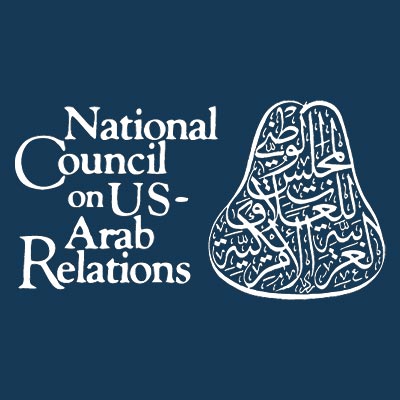By John Duke Anthony
DOWNLOAD “Strategic Dynamics of Iran-GCC relations” (.pdf)
Industrialization in the Gulf: A socioeconomic revolution, from the Georgetown University Center for Contemporary Arab Studies, examines the rapid industrialization of the GCC region and how local economies are beginning to diversify away from petroleum. The volume explores the causes, dimensions, and consequences of industrialization as well as the impact of this transformative process on the region’s economy and social composition.
National Council President & CEO Dr. John Duke Anthony contributed an essay to the volume on “Strategic Dynamics of Iran-GCC Relations.” Access to the essay can be made through the links above and below.
 After acknowledging the common interests between Tehran and the capitals of the GCC countries, Dr. Anthony examines and evaluates the basis for the pervasive mistrust and suspicion that lie at the heart of most of the GCC countries’ perceptions of and relations with Iran. In so doing, he analyzes and assesses “Eight Seeds of Distrust” (eight case studies) that, based on his long familiarity with the subject, provide context, background, and perception underscoring the GCC countries’ pervasive unease in dealing with Iran in sensitive foreign policy matters.
After acknowledging the common interests between Tehran and the capitals of the GCC countries, Dr. Anthony examines and evaluates the basis for the pervasive mistrust and suspicion that lie at the heart of most of the GCC countries’ perceptions of and relations with Iran. In so doing, he analyzes and assesses “Eight Seeds of Distrust” (eight case studies) that, based on his long familiarity with the subject, provide context, background, and perception underscoring the GCC countries’ pervasive unease in dealing with Iran in sensitive foreign policy matters.
Dr. Anthony posits that it is to be expected that many among Tehran’s government representatives take exception to the GCC countries’ grounds for suspicion of Iranian motives. Even so, he argues that Iran’s actions, policies, and positions on matters of importance to the GCC states — in particular, its interference in what most GCC citizens regard as primarily Arab-centric issues — explain why so many of the GCC region’s leaders harbor ongoing doubts and suspicions regarding Iran’s intentions in regional and global affairs. Dr. Anthony’s essay is interspersed with analyses of the continuing impact of Great Britain’s long imperial legacy, the inevitable rise of America’s regional hegemony, and the implications for those two nations– as well as for the GCC countries, Iraq, Iran, and the world beyond — of the Gulf’s ongoing globally vital strategic importance.
Download “Strategic Dynamics of Iran-GCC Relations” from Dr. John Duke Anthony through the links above or below to see how the seeds of mistrust were sown, and the current implications of this precarious relationship.
DOWNLOAD “Strategic Dynamics of Iran-GCC relations” (.pdf)
This essay appeared in:
Seznec, Jean-Francois, and Mimi Kirk, eds. Industrialization in the Gulf: A socioeconomic revolution. New York: Routledge, 2011. 78-102. Print.
Review of Industrialization in the Gulf: A socioeconomic revolution by The Emirates Center for Strategic Studies and Research:
“Industrialization in the Gulf can neither be called a flash in the pan nor a thing of the past. It can be best described as a sustained process and a work in progress that has fulfilled the economic needs of the region amid rapidly changing socio-political circumstances. For that very reason the causes, dimensions and consequences of industrialization in the region have been carefully perused and dissected in recent years. The Routledge edition Industrialization in the Gulf – A socioeconomic revolution, edited by Jean-François Seznec and Mimi Kirk, does just that and comes out with flying colors…”
“The impressive economic growth in the Gulf may be tantamount to a modern day industrial revolution but the rosy picture is not etched in stone. It has to deal with the persistent uncertainty of oil prices, the prospects of attack on Iran and another major worldwide recession. Subsequent chapters deal with political economy and the contentious issue of Gulf-Iran relations. It is an exercise in looking at industrialization in the new era of regionalism. John Duke Anthony’s chapter on strategic dimensions of Iran-GCC relations is particularly noteworthy and a worthy read…”
FURTHER READING:
- “Geopolitical Dynamics: Iran” from the 2011 Arab-U.S. Policymakers Conference
- “The Intervention in Bahrain through the Lenses of its Supporters” by Dr. John Duke Anthony
- “The Iran Conundrum” from the 2010 Arab-U.S. Policymakers Conference
- “War with Iran: Regional Reactions and Requirements” by Dr. John Duke Anthony
- “Gulf-U.S. Relations: Going Where?” by Dr. John Duke Anthony
- “Through a Looking Glass Darkly: Perspectives of the U.S.-Gulf Relationship with the Benefit of Hindsight from the Year Before” by Dr. John Duke Anthony
- “Iran in GCC Dynamics” by Dr. John Duke Anthony

